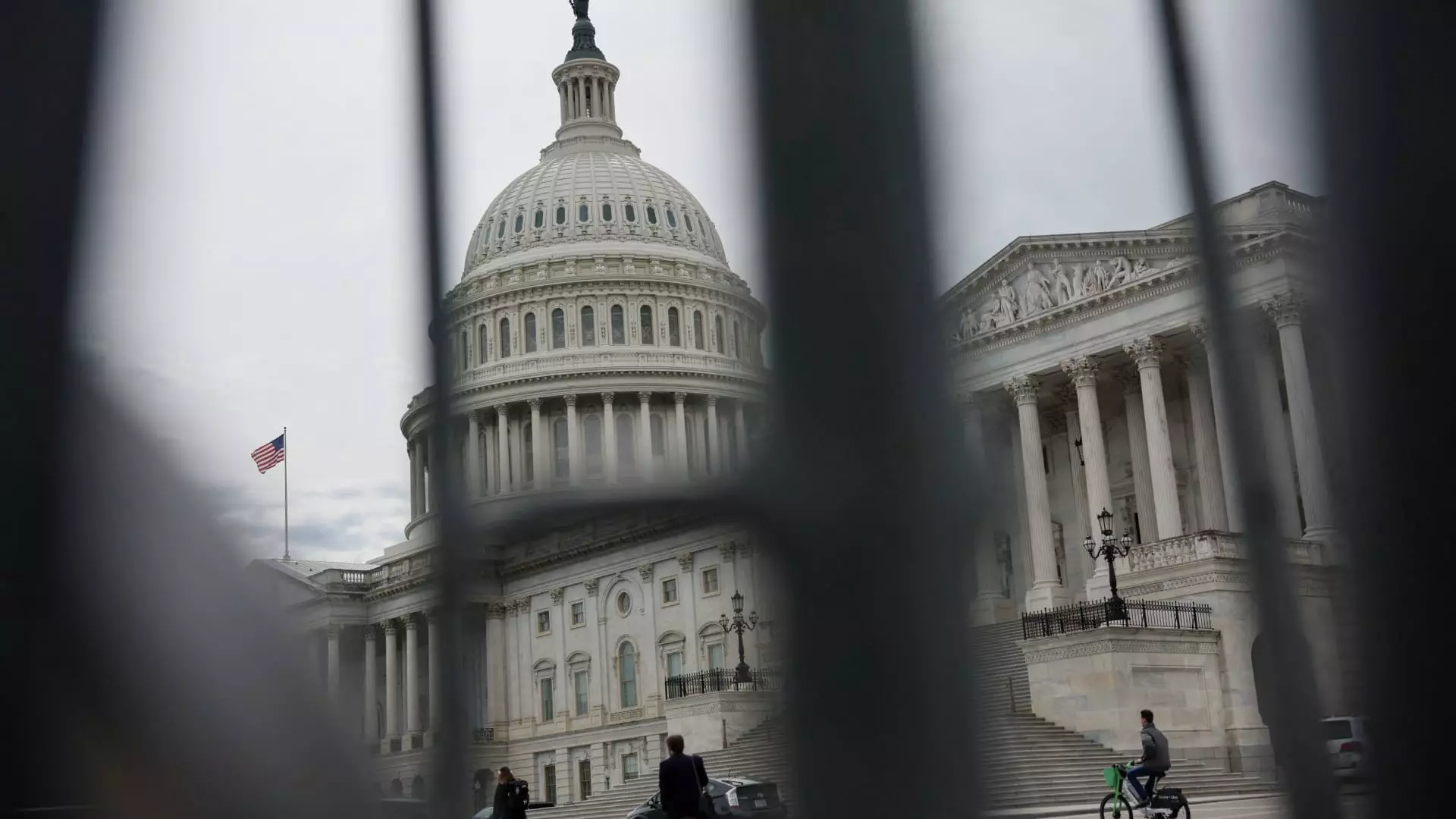The recent Senate approval of a budget plan pitched by the Republican Party epitomizes a dangerously myopic view of economic policy, prioritizing corporate interests over the livelihoods of the average American. By extending the tax cuts initially introduced in the 2017 Trump administration, the GOP is doubling down on a fiscal strategy that has already demonstrated its consequences: staggering levels of debt, increased income inequality, and a depreciating safety net for the most vulnerable citizens. This budget, poised to add approximately $5.7 trillion to our national debt over the next decade according to non-partisan analysts, sends a clear message: the party seems intent on preserving the wealth of the ultra-elite at the expense of essential public services.
The battle for this budget blueprint unfolded during an all-night legislative session, characterizing a critical moment in American governance. By employing a maneuver that circumvents the Senate’s filibuster, GOP leadership has effectively silenced dissent, making the appropriation of taxpayer money into a partisan chess game, rather than a collaborative effort to address pressing national concerns. The audacity to label these tax cuts as anything but an expansive drain on federal resources is not only disingenuous but imposes an insidious strain on future economic stability.
The False Claims of Fiscal Responsibility
Amidst a cacophony of statistics and economic jargon, one element remains conspicuously clear: the Republican leadership is grossly misrepresenting the true cost of extending these tax cuts. Their assertion that this initiative will only add $1.5 trillion to the debt is a blatant attempt to obscure the broader ramifications of their fiscal strategy. By framing the expiration of previous tax policies as merely a continuation rather than a new expense, they ignore the reality that their decisions will directly impact government revenue and expenditure capabilities.
Senator Lindsey Graham’s warning that allowing these tax cuts to expire could lead to increased taxes for the average American is a cleverly crafted scare tactic. The reality, however, is that by prioritizing corporate interests over equitable tax structures, the GOP is compounding the financial strains faced by middle-class families. A legitimately middle-income family of four could indeed see significant financial ramifications should these tax laws remain unchallenged, but not just from potential tax increases—rather also from the weakening of services and social support systems that are essential for their economic well-being.
The Dangerous Pursuit of Deficits in Spending Cuts
The irony of this budget plan is further underscored by its approach to debt and spending cuts. While Republicans herald their intention to constrain government spending, they simultaneously position themselves to increase the federal debt ceiling by $5 trillion. Promising savings by inefficiency in programs like Medicaid, while simultaneously aiming to impose cuts that threaten the very health and existence of many low-income families, reveals the insensitivity inherent in this strategy.
Senator Rand Paul of Kentucky articulates a sentiment that resonates with fiscal conservatives who are grappling with the contradiction present in the GOP’s financial rhetoric. It’s perplexing to witness a party that has historically condemned excessive spending pushing forth plans that prominently feature billions in increased debt. The suggested austerity measures appear not only contradictory but hypocritical, providing no concrete evidence or assurances that cuts to critical programs will be responsibly implemented or that they will genuinely contribute to sustainable budget practices.
The Impact on Society at Large
The ramifications of these policies extend far beyond mere numbers on a spreadsheet. The debate surrounding social services, particularly regarding Medicaid, showcases a critical confrontation between party lines and ethical governance. Cutting $880 billion from Medicaid, as proposed, would not merely affect budgets—it could dismantle healthcare safety nets for millions, throwing vulnerable populations into precarious living conditions. The impact of such austerity measures is plainly visible in the unequal health outcomes faced by low-income Americans, where access to healthcare is not a privilege but a fundamental right.
Moreover, the continued push for increased security measures and aggressive deportation policies only amplifies the divide within our society. Investing heavily in offensive immigration tactics while simultaneously attempting to enforce cuts to domestic health and welfare programs exposes the GOP’s failure to prioritize human life and dignity in economic policy. The contradiction begs the question: who truly benefits from these fiscal maneuvers if not the wealthy elite ready to capitalize on a weakened social infrastructure?
This reckless budget blueprint is more than just a matter of economic implications; it’s a substantive ideological declaration. Ignoring the needs of the masses in favor of the privileged elite serves only to perpetuate a cycle of inequality that bridges generations. The time has come for Americans to demand accountability from their representatives, ensuring that fiscal policy reflects the valuation of all lives and balances the scales toward equity and justice.


Leave a Reply